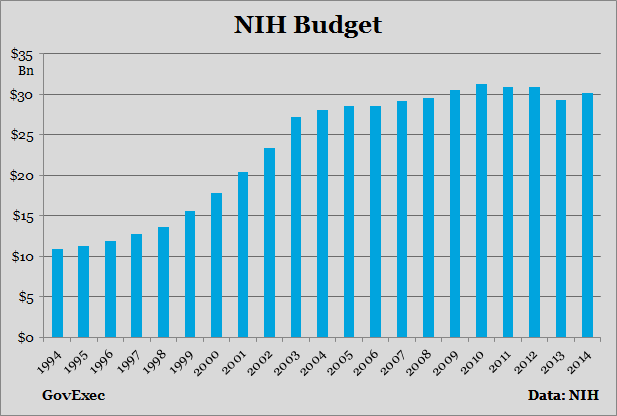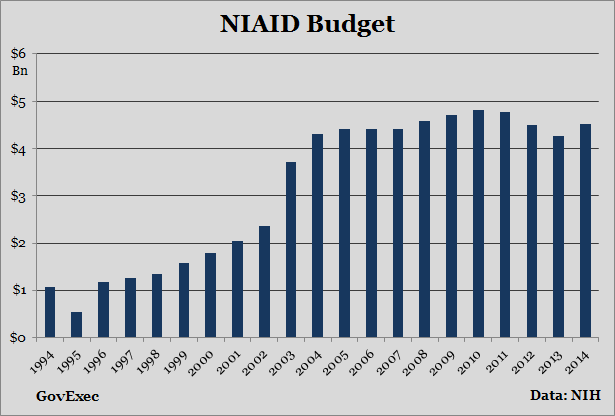Are NIH Budget Cuts Really to Blame for the Spread of Ebola?
Funding for the research agency has remained fairly steady over the last 10 years.
Global efforts to check the spread of Ebola thus far appear to be outmatched by the deadly virus, but the crisis could have been avoided altogether, according to the National Institutes of Health Director Dr. Francis Collins, if not for budget cuts at the agency. Collins recently told The Huffington Post that NIH, which has been working on Ebola vaccines since 2001, probably would have been ready with a vaccine before the virus spread throughout West Africa if research spending at the agency had not stagnated over the last decade.
NIH has had some success in testing for an Ebola vaccine, and it has begun human clinical trials after testing proved effective in animals. But mass distribution is still, in the best case scenario, several months off. With the number of Ebola cases growing exponentially, even the most optimistic estimates for arresting the spread of Ebola are grim.
A cocktail of antibodies called ZMapp, which has proven successful in its limited usage in treating some individuals who have contracted the virus, is also a long way from providing a solution to the outbreak, Collins said, noting that funding shortfalls are also to blame for the lack of knowledge and stock of the treatment.
The NIH budget grew steadily throughout the 1990s and spiked at the turn of the century, but for the last 10 years it has remained stagnant at around $30 billion annually. NIH spending has actually decreased since 2009 before receiving a slightly larger appropriation this year.
Democrats in the House and Senate have introduced legislation to boost spending at NIH over the next seven years, but neither chamber has moved on its respective bill. The chart below shows NIH spending over the last 20 years.

The budget for NIH’s National Institute of Allergy and Infectious Diseases, which has led the way on researching an Ebola vaccine, has largely mirrored that of its parent agency:

NEXT STORY: Are You Driving Yourself Insane?







